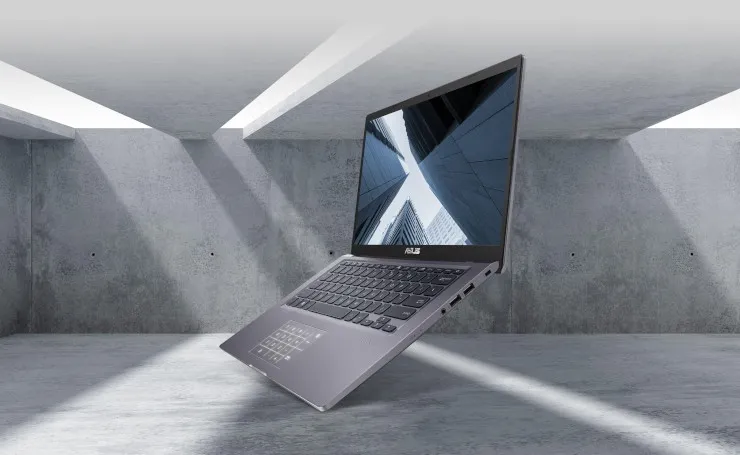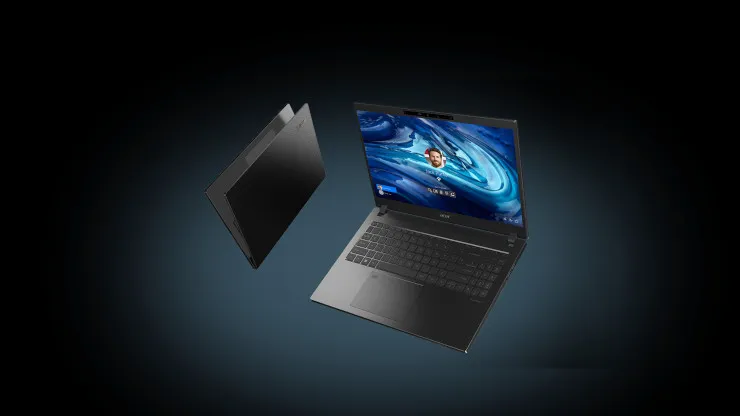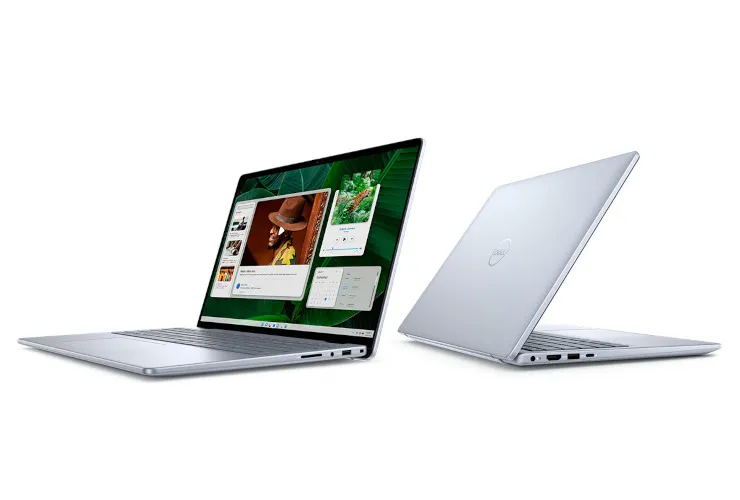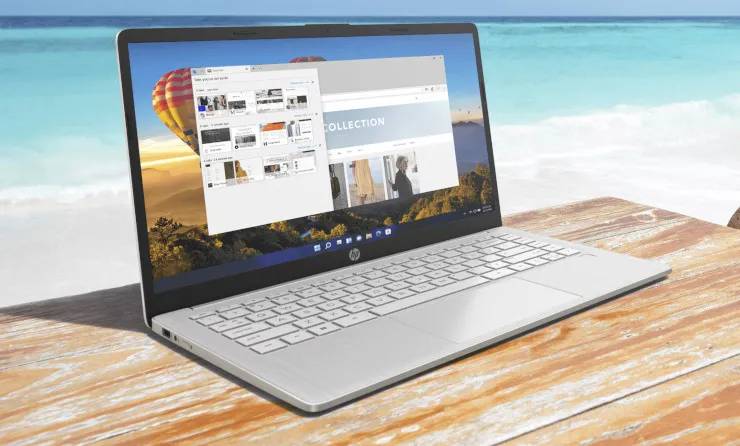Top 5 Best Laptops for Programming Students
When I was a full-stack instructor, most of my students came from non-technology industries. They joined the class with the hope of changing their careers. They spent their time learning new things such as coding or programming. They did it because they thought that was cool. They saw that maybe the technology industry has a brighter future. Well, the steps weren't easy. Learn new things not of their daily habit. Try to build a new habit, typing with ten fingers, fixing technical issues from the laptop, and many more.
I tried to help them and communicate with them. It was a challenge because there was a tech gap. For example, they didn't even know how the web page works. Maybe this problem also happened in the early stage of Computer Science students.
Coding Bootcamp is the solution if you want to become a developer in the tech industry. It is fast and affordable.
Talk about the laptop, this tool is a must. Most of my students came with consumer-based laptops and Windows. A few of my colleagues and family asked me, "What laptop do you recommend? Please not the expensive one.". So, let me answer that question in detail here.
Old laptops, is that a problem? Not a problem. Most servers in the world run for a long run with the same hardware as when they were originally set up. They rarely upgrade it. Maybe they will upgrade them if some parts are broken. That requires some effort. The best way to do that is to set up a new entire machine with the latest technology, copy the data to that new machine, and then repoint the domain. Okay, let's stop talking about the server and migrating stuff. Let's get back to the main topic, the laptops.
We will discuss buying a laptop with the latest technology. Talk about the specific components needed, especially for programming. So, this article will be timeless. If you are on a budget, you can downgrade up to 2 generations.
Processor
I recommend you choose x86 architecture. Arm architecture is new at this moment. So, Intel and AMD. Both of them are fast, efficient, Linux-friendly and their ecosystem is mature. They both have business management capabilities, Intel vPro and AMD Ryzen Pro. But, AMD's GPU, Radeon is more mature here. Even Intel Arc is new, I saw it is faster than Radeon in some benchmarks. It is all about an ecosystem. But, at least i5 for Intel and Ryzen 5 for AMD. You are free to choose.
RAM
You will open many web browser tabs, IDEs, and Docker containers. Computers will use RAM to cache them to speed up processes or eliminate lags. So, at least you have 16GB of RAM. I don't care about the DDR type. If you can afford the latest DDR type, go for it.
Storage
You will store a lot of Git repositories including their vendors or node modules, business files, Docker images, and many more. You will run multiple projects at once. I recommend an SSD with at least 512GB capacity and M.2 form factor. For old laptops, you can go with a 2.5-inch SSD. Do not use HDD.
Display
45% NTSC on IPS panel is fine for programming. It will reduce the laptop cost. But make sure that you choose the anti-glare feature. Most people prefer dark themes for their IDEs. The glossy is not good for that. If you can afford the 100% sRGB, go for it, that is the best.
Operating System
Linux. Make sure that you choose the Linux-friendly laptop. It means the WiFi, function keys, audio, or all the hardware are working properly.
Most servers run on Linux. You have to get used to its ecosystem. Apache, Nginx, RabbitMQ, Kafka, Redis, Memcached, Elastic Stack, MongoDB, MySQL, PostgreSQL, and even MSSQL work best on Linux. You can run them natively on your local without Docker because Docker consume more resources. Most SaaS prioritize running on Linux first. All programming languages run on Linux too.
Linux will make your laptop stay longer. Your laptops will always get the latest updates and Windows pushes you to upgrade the hardware to adapt to the new updates. There are a lot of distros. You can choose what you want. Ubuntu, Fedora, or maybe Arch Linux?
There are a lot of Linux desktops. GNOME and Plasma are the popular ones. If they make your laptop heavy, you can try Xfce.
Linux is open source. That means it has no commercial support like Windows and macOS. It is community-powered. If you want to know how the operating system works and, how computer hardware communicates with each other by the input, learn Linux.
Laptop
4 important hardware components that I mentioned. Processor, RAM, storage, and display. I don't care about other hardware like battery, ports, security features, etc. You can go with your budget.
I sorted laptops from 5 brands. So, you don't need to be confused about the laptop series, especially between consumer-based and business-based series from each brand. You also can pick these laptops for your small to medium company.
5. ASUS ExpertBook P1

If you want a business laptop from ASUS, go for ExpertBook. It is expensive. If you want an affordable one, go for the P1 series. Like the picture above, ASUS P1412.
The cons are that it uses old-generation, especially for the processor. ASUS P1412 is an old generation of P1. You can add your budget to get the latest generation of P1, which is rare in the market, especially in some countries. ASUS prioritizes consumer-based products for creativity and gaming instead of business.
4. Acer TravelMate P2

Acer TravelMate is a good business laptop. P2 is an affordable one. The cons are it is rare in the market, especially in some countries. But not as rare as ASUS P1.
3. Dell Inspiron

Most Dell laptops have good support for Linux, and their line-up for affordable business laptops is Dell Inspiron. Some small to medium companies provide Dell Inspiron to their employees.
You can find Dell laptops in almost all markets, even the latest generation. What I like about Dell Inspiron is that in addition to its affordable price, the latest releases have the latest processors, RAM, and good battery life.
2. HP 14

The base model of the HP laptop, especially the 14-inch, is more affordable than the Dell Inspiron. You can find them on the market and upgrade them easily, especially RAM and storage. It has good support for Linux and is used by small to medium companies.
The latest releases, especially the processor and RAM, are easy to find on the market. This is a good choice if you are on a budget and want to focus on performance or value.
1. Lenovo ThinkBook
Lenovo ThinkBook has good durability with the MIL-STD-810H certificate, the same certificate as the ASUS ExpertBook and Acer TravelMate, but affordable. The screen opens up to 180 degrees to prevent the breaking of the hinge if someone accidentally pushes the lid too far. So, it is ready for the long run.
It has a good processor, battery, and slots for RAM and M.2 SSD storage. So, you can upgrade later.
It has a great support for Linux. You can check out my video.
Why a business laptop?
In short, business-based laptops have more security features than consumer-based laptops, easy to repair, replace the battery, or upgrade the storage or RAM.
In my opinion, I felt the business laptops are more friendly to Linux. So, it is good for programming students or even startups.
Why not a MacBook?
A great question. As an Apple user, let me sorry to the Apple fanboys first.
The MacBook is a cool laptop. But it is not designed for Back-End or DevOps Engineers. As an ex-Full-Stack instructor, I don't recommend MacBook to my students either.
At this moment, with the base model of MacBook, we get:
- A great processor, Apple silicon, with macOS. Apple silicon is optimized only for macOS.
- A great IPS display with wide color (P3).
- Great audio.
- Great trackpad.
- Apple ecosystem.
But, what we sacrifice are:
- RAM. 8GB of RAM is not enough. The base model of 16GB of RAM of MacBook is expensive.
- Storage. 256GB of SSD is not enough. We need to store files locally, especially for the projects and apps for the projects to run, and we need fast SSD.
Apple Silicon with macOS is awesome. But x86 (Intel and AMD) are not bad. They are mature. Even it took 4 years (since Apple M1) for them to beat Apple Silicon by using Intel Lunar Lake and AMD Ryzen AI. MacBook is great for creative stuff like photo and video editing. It is also a must for iOS, iPadOS, and macOS development. So, choose your device wisely.
Remember to invest in yourselves, not in devices. You don't need an expensive laptop to start coding.
In the next articles, I will share my tips in Full-Stack development for FREE. Don't miss it. Subscribe!